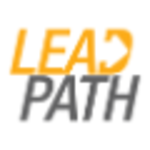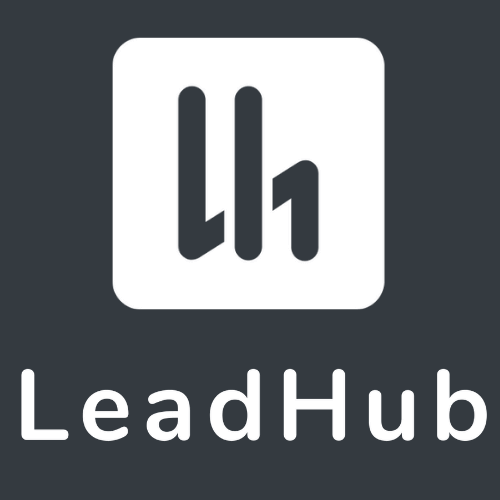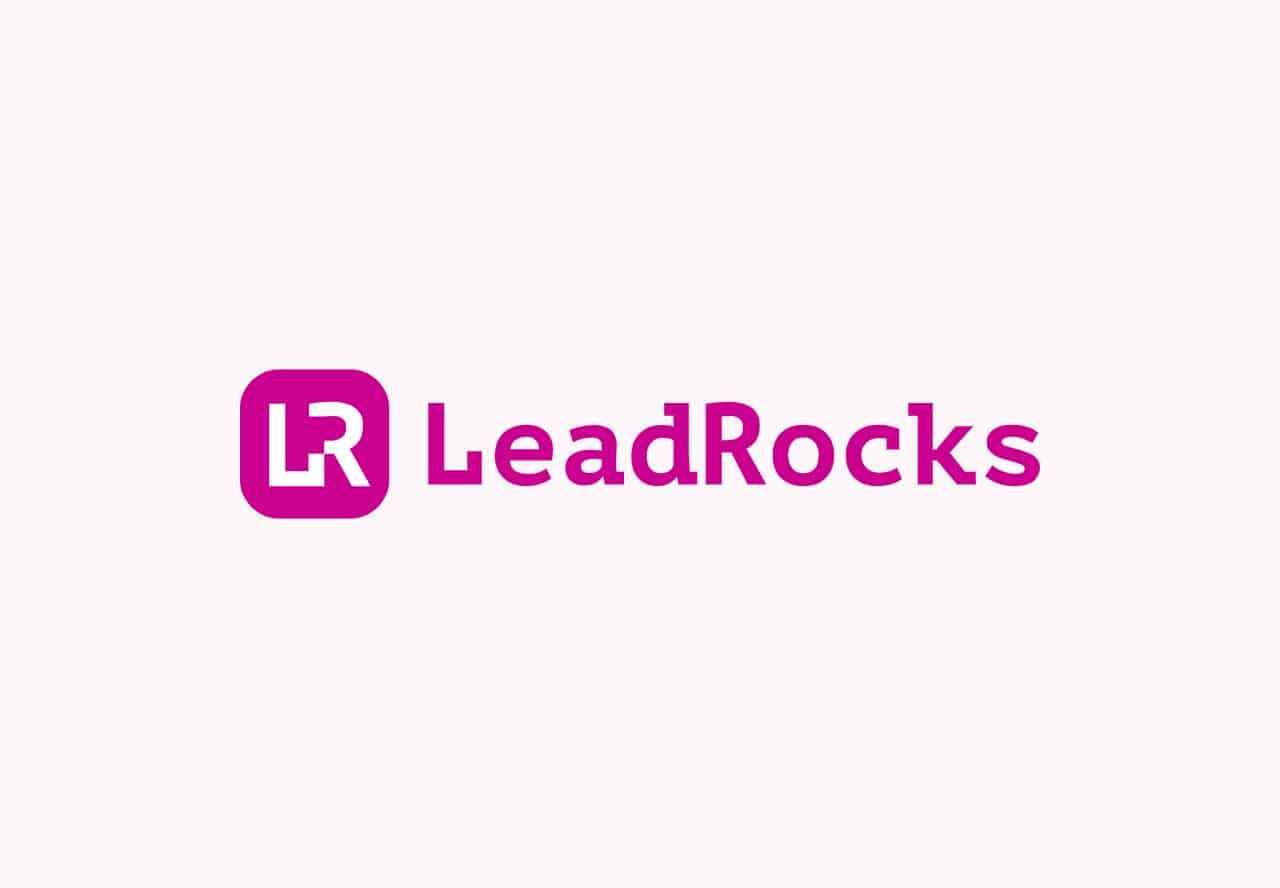Description

LeadGenius

LeadPath
Comprehensive Overview: LeadGenius vs LeadPath
LeadGenius and LeadPath are two distinct products designed to address various aspects of lead generation and customer acquisition, with specific features and target markets. Here's a comprehensive overview of each:
LeadGenius
a) Primary Functions and Target Markets:
LeadGenius is a lead generation and data intelligence platform that primarily focuses on B2B markets. Its core functions include:
- Custom Lead Generation: Leveraging a combination of machine learning and human intelligence to generate high-quality leads tailored to specific business needs.
- Data Enrichment: Enhancing existing datasets with accurate and up-to-date information.
- Market Research: Providing insights and analysis for better targeting and segmentation.
- Audience Development: Helping businesses build targeted lists of potential customers.
Target Markets: LeadGenius primarily targets mid to large-sized enterprises looking for detailed, custom data solutions in sectors like technology, finance, and marketing.
b) Market Share and User Base:
LeadGenius holds a notable position in the B2B lead generation space due to its innovative approach combining technology with human expertise. While exact market share figures aren't often disclosed in public data, LeadGenius is generally viewed as a major player, valued for its quality of data and customization capabilities. Its user base typically comprises larger organizations that prioritize bespoke lead generation over broad volume.
c) Key Differentiating Factors:
- Hybrid Model: Integrates AI-driven technology with human researchers to ensure data quality and relevance.
- Customization: Highly tailored solutions that cater to specific company requirements and target demographics.
- Global Reach with Local Insights: Gains local market insights through a distributed workforce model which helps in penetrating diverse geographical markets.
LeadPath
a) Primary Functions and Target Markets:
LeadPath is a software platform designed for managing and tracking leads within the customer acquisition funnel. Its key functions include:
- Lead Management: Organizing and prioritizing leads to optimize sales processes.
- Lead Scoring: Assessing the potential of leads through predictive algorithms.
- ** Workflow Automation**: Streamlining the sales process through automated tasks and notifications.
- Analytics and Reporting: Providing insights into lead performance and conversion metrics.
Target Markets: LeadPath serves small to medium-sized businesses (SMBs) looking for efficient, cost-effective solutions to manage and convert leads within their sales pipelines.
b) Market Share and User Base:
LeadPath, as a lead management tool, competes in a broader market that includes many CRM and lead management solutions. It tends to attract SMBs because of its cost-effectiveness and ease of integration. Compared to LeadGenius, its market share might be narrower but it competes in a different segment focused on streamlining and optimizing lead management rather than generation.
c) Key Differentiating Factors:
- Simplicity and Usability: Designed to be intuitive for fast adoption among small teams with limited IT resources.
- Cost-Efficient: Key selling point for budget-conscious SMBs.
- Integration Capabilities: Easily integrates with existing CRM platforms and marketing tools, enhancing its utility in managing customer relationships.
Comparative Summary:
- Focus: LeadGenius excels in custom lead generation and data enrichment, mainly for larger enterprises, while LeadPath specializes in lead management and optimization, catering more to SMBs.
- Technology vs. Operational Approach: LeadGenius melds AI with human input for a hybrid model; LeadPath primarily automates the lead management processes.
- Target Market: LeadGenius is more suitable for businesses needing custom and deep data insights, whereas LeadPath serves businesses that need efficient, integrated funnels.
- Implementation Complexity: LeadGenius might involve more complex, customized deployment, whereas LeadPath is positioned for quick setup and ease of use.
In sum, LeadGenius and LeadPath cater to different stages of the lead lifecycle and thus serve different customer segments with unique requirements.
Contact Info

Year founded :
2011
+1 720-263-2433
Not Available
United States
Not Available

Year founded :
2015
+1 312-219-9660
Not Available
United States
http://www.linkedin.com/company/leadpath
Feature Similarity Breakdown: LeadGenius, LeadPath
As of my last update in October 2023, both LeadGenius and LeadPath are platforms designed to assist businesses in their lead generation and sales processes. Here's a comparative breakdown based on core features, user interfaces, and unique features:
a) Core Features in Common
-
Lead Data Collection: Both platforms collect and manage data to generate leads. They aim to provide accurate and comprehensive information about potential clients or businesses.
-
Lead Enrichment: They augment existing information with additional data points to help businesses prioritize and personalize their sales efforts.
-
Integration Capabilities: Each platform generally offers integration options with CRM systems and other sales tools, allowing seamless data transfer and workflow automation.
-
Segmentation and Targeting: Users can segment their audience based on different criteria to focus their outreach and marketing efforts.
-
Analytics and Reporting: Both provide analytics to track lead generation performance and the effectiveness of various strategies.
b) User Interface Comparison
-
LeadGenius: Known for its intuitive and user-friendly interface, LeadGenius focuses on simplicity and ease of use. Its dashboard is usually straightforward, allowing users to navigate through different features with minimal training.
-
LeadPath: While also user-friendly, LeadPath may offer more customization options for the interface than LeadGenius. This allows users to tailor the experience more closely to their specific workflow needs, but it might come with a slightly steeper learning curve as a result.
c) Unique Features
-
LeadGenius:
- Human and AI-driven Data Collection: LeadGenius combines human intelligence with AI to offer highly accurate and customized data sourcing. This approach can result in more detailed and nuanced lead information.
- Global Reach: It often emphasizes having a broader scope, potentially providing better support for international companies or those looking to expand globally.
-
LeadPath:
- Customizable Sales Funnels: LeadPath often provides robust tools for building and customizing sales funnels, offering flexibility in handling different customer journeys.
- Advanced Lead Scoring and Prioritization: LeadPath may offer more advanced mechanisms for scoring leads based on customizable criteria, which can help prioritize high-value opportunities more effectively.
These platforms evolve over time, and specific implementations and enhancements may have been introduced since my last update. Businesses should evaluate these tools based on their current capabilities and see live demos or trial versions to best assess their fit for specific needs and preferences.
Features

Not Available

Not Available
Best Fit Use Cases: LeadGenius, LeadPath
LeadGenius and LeadPath are both tools designed to optimize lead generation and management but cater to different business needs and scenarios. Here’s a breakdown of their best use cases:
a) Best Fit Use Cases for LeadGenius:
-
Complex B2B Sales Environments:
- LeadGenius is ideal for businesses with long sales cycles involving complex decision-making processes, typically found in B2B industries like enterprise software, manufacturing equipment, or IT services.
-
Organizations Seeking High-Quality, Customized Leads:
- Companies that require tailored lead data with specific criteria will find LeadGenius beneficial, as it focuses on delivering bespoke prospect lists with enriched data.
-
Large Enterprises & Global Outreach:
- Large companies aiming for global market expansion will appreciate LeadGenius's ability to provide accurate and diverse global leads, catering to nuanced regional market needs.
-
Accounts-Based Marketing (ABM) Strategies:
- Businesses employing ABM strategies can use LeadGenius to precisely target high-value accounts with personalized contact data.
-
High-Touch Sales Processes:
- LeadGenius supports businesses where each lead requires significant nurturing and personalized attention, such as in high-value B2B transactions.
b) Scenarios Where LeadPath is Preferred:
-
Startups & SMEs Focused on Growth:
- Small to medium-sized enterprises, as well as startups looking to efficiently scale their lead generation processes, will benefit from LeadPath's streamlined and potentially more affordable solutions.
-
Lean Marketing Teams:
- Companies with lean marketing teams benefit from LeadPath’s user-friendly interfaces and straightforward lead management processes.
-
Businesses Needing Quick Implementation & Easy Integration:
- When speed and simplicity are priorities, LeadPath's ease of integration with other marketing or CRM tools can provide a swift solution for businesses wanting to quickly establish a lead management system.
-
Industry-Agnostic Companies:
- Businesses in diverse industries without the need for highly specialized or customized data can utilize LeadPath for broad lead generation and management.
-
Transactional Sales Models:
- Companies with shorter sales cycles that do not require as much personalization in lead generation and customer interaction might find LeadPath sufficient and cost-effective.
d) Catering to Different Industry Verticals or Company Sizes:
-
LeadGenius: Caters more effectively to large enterprises and specific industry verticals that need detailed and customized data solutions. Industries like technology, finance, healthcare, and manufacturing where the sales process is complex and data-sensitive are ideal matches.
-
LeadPath: More suitable for SMEs and startups in more generalized verticals, such as retail, simple B2C markets, and service-based industries. It offers scalability and adaptability for high-growth companies needing efficient, broad-stroke solutions.
Both products target enhancing lead generation, but their offerings cater to different scales and complexities of business needs, enabling them to serve different segments of the market effectively.
Pricing

Pricing Not Available

Pricing Not Available
Metrics History
Metrics History
Comparing undefined across companies
Conclusion & Final Verdict: LeadGenius vs LeadPath
To determine the best overall value between LeadGenius and LeadPath, we need to analyze their features, pricing, user experience, and target audience. Here is a comprehensive comparison:
LeadGenius vs. LeadPath: Conclusion and Verdict
a) Best Overall Value:
LeadGenius is often recognized for its high-quality data and comprehensive lead generation services that cater to businesses looking for personalized and targeted B2B leads. It combines machine learning with human intelligence to curate verified, custom data.
LeadPath is designed as a lead management tool that provides sales teams with a robust platform to capture, track, and manage leads more efficiently. It's focused more on CRM and lead nurturing rather than raw lead generation.
Considering all factors, LeadGenius offers the best overall value for companies prioritizing data accuracy and custom lead generation services. It's ideal for businesses that need to target specific industries or demographics and are willing to invest in high-quality data.
b) Pros and Cons:
LeadGenius:
-
Pros:
- High-quality, customized lead data
- Integration of machine learning and human intelligence for data accuracy
- Effective for targeting niche markets
- Strong support and customer service
-
Cons:
- Potentially higher cost due to custom data services
- May include features unnecessary for businesses simply needing CRM functionalities
LeadPath:
-
Pros:
- Efficient lead management and CRM capabilities
- Cost-effective for basic lead nurturing and tracking needs
- User-friendly interface and ease of use
- Good for small to medium-sized businesses with basic lead management needs
-
Cons:
- Limited lead generation features compared to specialized services
- May require integration with other tools for comprehensive lead generation capabilities
c) Recommendations:
-
For Businesses Seeking High-Quality and Custom Data:
- Choose LeadGenius if your primary goal is to obtain custom, high-quality leads and you have specific industry targets. The investment into their data services can be justified if precision and customization are critical to your sales strategy.
-
For Businesses Needing Lead Management and CRM:
- Opt for LeadPath if you’re a small to medium-sized business looking to improve your existing lead management processes without the need for extensive data generation. It's a cost-effective solution for enhancing sales funnel efficiency.
-
For Users Needing Both Lead Generation and Management:
- Consider integrating both tools, leveraging LeadGenius for lead generation and LeadPath for management. Ensure that both systems can be integrated or work alongside each other efficiently.
Before making a final decision, users should assess their specific business needs, budget constraints, and existing technological stack to ensure that the chosen solution aligns best with their goals. Additionally, taking advantage of trial periods and demos may give further insights into which tool fits better into the workflow.
Add to compare
Add similar companies



